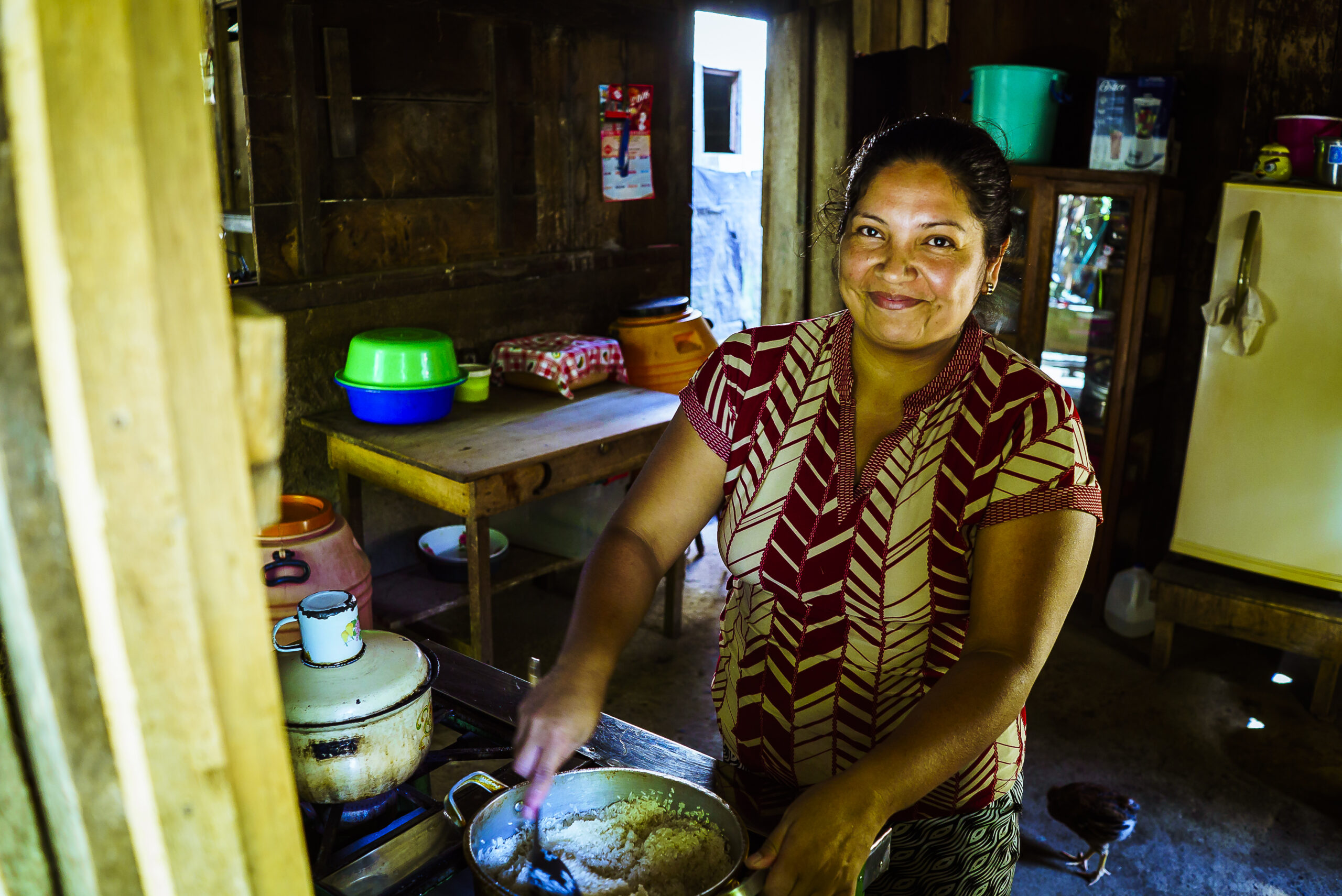Blog post by Melina Campos, Hivos advocacy officer Latin America
When we talk about energy we tend to think about cables, megawatts and engineering. But energy is something simpler and more vital than that. According to the Spanish Language Usage Dictionary compiled by Maria Moliner, energy means “greater or lesser ability of someone or something to perform a task, an effort, or produce an effect.”
It is thanks to energy that we travel, cook and communicate. Thus, it is not strange that western history has been stratified and divided according to milestones marked by the diverse forms of energy production: from the discovery of fire and the wheel, and their benefits, to the invention of the steam engine, the dawning of the industrial revolution, and all the way to our days, defined by the digital era.
But what does history tell us about women’s role in the use and provision of energy? Practically nothing. My work on renewable energy, however, has taken me across the plains and mountains of the Central American countryside, home to thousands and thousands of women. And if there is something that has become clear to me in these past five years of experience, stories and learning, it´s that if women stop working for a day, power also stops.
Fire
In August of 2015, I traveled to several zones of Honduras. The objective was to learn about rural women´s experience with regards to their use of improved woodstoves in order to implement with them a plausible certification project. The project was not fully executed in the end, but the stories and experiences remained in my heart.
We went to La Esperanza, land of the Mayan Lenca people, to Siguatepeque and several villages in the Zamorano valley. We went to the mountains of Santa Ana, in the outskirts of Tegucigalpa, where power is produced by the wind, and electric energy passes in front of the houses but not into them. All these places were different and their women tell a singular version of exactly the same story.
They get up at four in the morning, an hour before the sun comes up, and the first thing they do is light a fire. Their day develops alongside this fire lit with wood – either bought or collected from the surroundings – brought by their partners or their children.
The women make coffee and prepare breakfast that their partners and children can take with them to the fields. They then prepare lunch, and coffee in the afternoon. They cook tortillas and beans. They prepare stews. Between each meal they hand-wash clothes and take care of their children. The last thing they do in the day is to put out the fire. Then, when darkness sets in at around 6pm, as is usual in the tropics, they take a couple of hours –maximum– to get some rest.
What would happen today if they decided to stop?
Nowadays, almost all women cook with more efficient forms of energy, thanks to improved woodstoves, which have brought economic and health benefits. These programs prevent deforestation and reduce CO2 emissions considerably. Above all, for women, these programs represent a gain in terms of time. Our task is to ensure that they serve as a platform for women to change not only their individual condition, but also their position in society.
What would happen if these women, and all women, decided to stop today? Thousands of fires in the world would remain un-lit; millions of people would be left without coffee, tortillas or beans to take to the field. And, for the first time, women would have a day off.
If women stop, energy for their families also stops. There is no other way. Many people ask me: “What do women have to do with energy?” What these beautiful and brave women, standing by their stoves – their fires –, showed me is that they have everything to do with it.
They taught me that we cannot talk about energy without talking about women, and we cannot talk about the March 8 2017 International Women’s Strike without thinking what the effect on power would be if all, really all women, could stop work today.
If women stop, power stops, and the world stops. Among many other things, it is for them that I march today. I march so that renewable energy gives them the possibility of a greater capacity to achieve tasks and efforts, and above all, so they can produce effects in all aspects of their lives.
María Moliner was a brilliant academic who was denied a chair in the Royal Academy of Spanish Language for being a woman. She then created a complete dictionary of Spanish Language Usage. Today I celebrate her by using her definition of energy.




